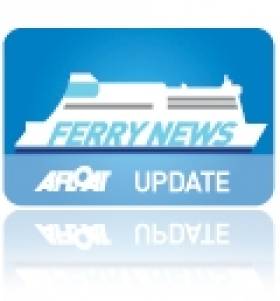Displaying items by tag: Export Industry Awards
Entries Open for 'Maritime Competitive Edge Award' At Export Industry Awards 2018
#Ports&Shipping - Take the opportunity to enter the Export Industry Awards 'Maritime Competitive Edge Award' sponsored by the Irish Maritime Development Office.
The IMDO posted an update yesterday to highlight the award among 11 categories at the annual Export Industry Awards organised by the Irish Exporters Association (IEA). The awards recognise the remarkable achievements of companies working in the export industry. Companies can enter from 11 Categories and be in with a chance to be selected as the 2018 Exporter of the Year.
To meet the criteria for consideration for the IMDO sponsored 'Maritime Competitive Edge Award', the company must be able to demonstrate how their service has led to export success in the maritime shipping services sector.
There is no application fee, however voting looms as it closes this Sunday 16th September.
For further information on the Award's objective and criteria click here and with a link to enter online.
All winners will be announced at the Gala Dinner on Friday, 16th November, held at the Clayton Hotel, Burlington Road in Dublin.
Tickets are available by clicking here.
Short Sea Shipping Award Goes to Stena Line
#FERRY AWARD – At the annual Irish Exporters Association's Export Industry Awards, among the categories was for the Short Sea Shipping Company of the Year 2012, which was awarded to Stena Line in Rosslare, Co. Wexford.
The award, sponsored by the Irish Maritime Development Office (IMDO), recognises the strategically important role of short sea shipping to our island economy. The other nominees were: Eucon Shipping and Transport Ltd., Dublin and Samskip Multimodal Container Logistics, Dublin.































































